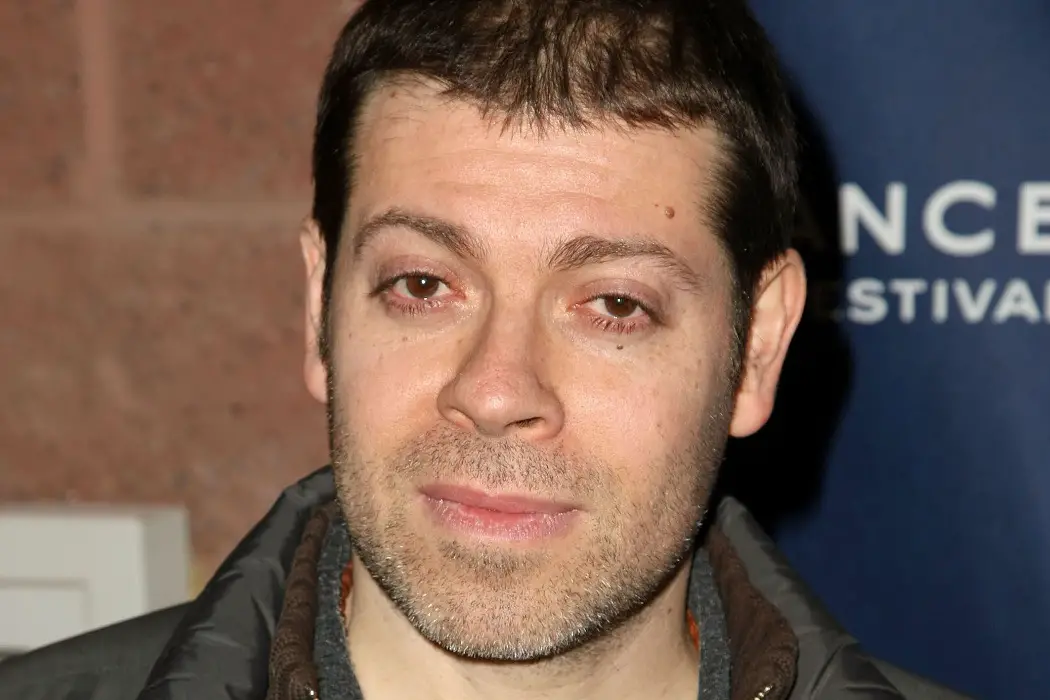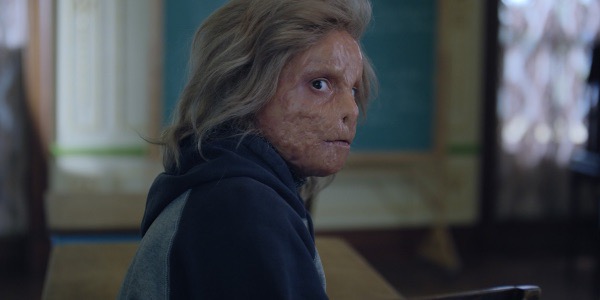“It Is A Holocaust Movie In Its Own Way.” Interview With Boaz Yakin, Director Of BOARDING SCHOOL

Stephanie Archer is 39 year old film fanatic living in…
With films such as Safe, Now You See Me, Remember the Titans, and Max, Boaz Yakin has made quite a name for himself.
A writer, director and producer, though not always at the same time,Yakin has proven himself an undeniable force in Hollywood. In his latest film Boarding School, Boaz Yakin takes the helm of horror directing for the first time, bringing to life the story of a young boy faced with the horrors of the past and the complexity of accepting one’s self in the present.
I was able to speak with Boaz Yakin, diving deeper into a film whose story has a resounding effect and an exemplary showcasing of the power of cinema.
Stephanie Archer for Film Inquiry: You have such an eclectic body of work, you know, having previously written and directed such films as Now You See Me, Remember the Titans and Uptown Girls. What made you choose to write and direct a horror film? And what inspired the story?
Boaz Yakin: Well, I mean I, I guess I have worked in what you call all the genres. I mean I, I even had a little company for a while where we were producing horror movies and like the Hostel movies that Eli Roth made came out of that company. This is the first time I sort of got in myself as a director. I wanted to explore this idea of dealing with one feeling of weakness that needs to be turned into strength, you know, that the things that we feel we should be ashamed of that are actually the things that give us strength when we embrace them fully – our inner feminine.
Like for me, at least personally, growing up my sense of my inner femininity and my sense of ethnicity and all that kind of thing, were often things that made me feel weak and made me feel like an outsider. And instead as an adult, learning how to embrace and accept those things has been what has enabled me to finally, to some degree at least, you know, grow up and become whole and then become stronger. So that was really the theme I wanted to explore in the movie.

That’s awesome. That really came through. Each of these children seem to represent this being misunderstood, this weakness of “unclean”, as is mentioned in the film, members of society. What was the decision to cast Nadia Alexander in a male role and did diversity and social issues play into this decision?
Boaz Yakin: In Nadia’s case, no. I mean, although don’t give too much away, but the idea was, you know, in order to cast a 13-year-old boy with the level of makeup that needed to be done, it would literally be impossible. They had to spend four hours in, she had to spend, four hours in a chair, so there’s only so many hours that you’re allowed work with a kid and also it would drive a kid crazy, you know.
And Nadia is such an interesting and strong actress that we decided to go with a young actress to do the part rather than a boy. So that was not a gender specific choice as much as a practical choice.
Comic books seem to appear several times throughout Boarding School. Was there any inspiration you drew from these comic books with regards to vigilante superheroes and the powers and abilities to serve and protect?
Boaz Yakin: Well, I don’t know. It was just a big part of my childhood, honestly, it’s just very personal. They were a big part of my childhood and you know, so was basketball – and we see it there. I think what I liked about the comic books and the film was that the boy in his own way is actually a little bit about, you know, he’s a comic book guy, he’s a jock, he likes superheroes, like he’s very much a boy boy.
And yet there is this inner feminine that’s boiling up inside of him that he needs to address and deal with. I thought the contrast of that kind of traditional boy with what he’s actually dealing with on the inside was interesting.
I really liked his character. It was just that femininity you speak of, it comes out so clearly and not just in the obvious ways, and everything going on psychologically with him.
Boaz Yakin: Yeah, yeah. You know it’s about embracing that on some level and about how hard it is for us to embrace that often.

There seems to also be a parallel of the treatment of Jews by the Nazi regime during World War II and the ostracized behaviors toward the children in the school, to rid the world of “unworthy and unclean”. Is there a message to present day society that you were trying to get across?
Boaz Yakin: Well, to a degree, yes. But from a very personal perspective because these things are always going on, you know. I grew up with a very strong awareness that the entire Ashkenazic Polish Jewish side of my family were killed by the Nazis in World War II, like I had no one on that side of my family survive other than my mom and her parents because they were living in Poland at the time – they were in Palestine at the time.
And I’m part Ashkenazic and part Sephardic, but I always growing up had this kind of intense feeling of shame for the Ashkenazic side of my family because they “let themselves be killed”, right? Like, that’s completely irrational, but when you were a kid, it affects you. You’re like, “my family were losers. They were victims and they were weak”, right?
So, it’s something that Jews, not Israeli Jews really, but Jews of the diaspora really have to contend with psychologically, this feeling of victimization and so on. And so, I tried to really combine that with the sense of a waft feminine and with the power of deceptive, because it is a Holocaust movie in its own way. You know, I mean, I think interesting horror movies tend to be about something other than what they seem to be about.
And you know, for me, Boarding School is ultimately a Holocaust movie than a horror movie, in my mind. And it’s a bit of a parable, it’s a psychological parable for that. So it comes from a very personal place more than a desire to do kind of something saying something about our social mistreatment of the other, you know, although that plays into it of course.
Film Inquiry would like to thank Boaz Yakin for taking the time to speak with us.
Boarding School will be released as VOD and in US theaters on August 31, 2018. For all international release dates, see here.
Does content like this matter to you?
Become a Member and support film journalism. Unlock access to all of Film Inquiry`s great articles. Join a community of like-minded readers who are passionate about cinema - get access to our private members Network, give back to independent filmmakers, and more.













